It would be plenty easy for Southerners faithful to Dixieland to throw up their hands in despair, as we see so many of our people identifying more with vapid, deracinated American exceptionalism or with some other ideology or idolatry (there’s a difference?) than with the traditions of their own forefathers.
And yet there is room for hope, given the right conditions.
The Christian island of Cyprus offers a wonderful illustration of this. In 1974, she was overrun by vicious Muslim Turks, who have remained as occupiers of the northern part of the island (the parallels with the Yankee invasion and conquest of the South are readily apparent at this point).
We turn to an Orthodox priest named Fr Gerasimos Fokas for more of the story:
Cyprus greatly venerates the Apostle Andrew. There is no house that does not have an Andrew or Androula. And exactly where the tip of Cyprus is, at the cape, it is written on the map as the Cape of the Apostle Andrew, and this is exactly there Saint Helen built, while traveling to Constantinople from Jerusalem, the Monastery of the Apostle Andrew.
In 1974, with the unfortunate occupation by the Turks, several thousand people were left trapped in the Karpasia region, where the Monastery is located. With the suffering, with the intimidation, the people left. 800 people remained in Karpasia, Christian people and teachers and priests also remained. Four priests remained with them. Unfortunately, the Turks continued their plan: they burned, imprisoned, intimidated, so the people were constantly leaving.
Of the four priests, one was martyred, the other two died and one remained to work in the churches, to serve the religious needs of Christians and to be in the Monastery of the Apostle Andrew – Father Zacharias. This priest was married and had four children and the Turks were slowly closing the schools because the children were leaving, and when the priest’s children reached high school, there was no more school due to the lack of students. And then the disagreement between the priest and his presbytera began.
“Don’t you see what’s happening, Father Zacharias? The Turks are not leaving here, the schools are closed, the village is deserted, everyone has left, what will become of my children?”
The poor priest tried to convince her that being a priest means self-denial and duty, but she, as a mother, saw the future of her children being destroyed. She sent the children to the free part of Nicosia so that they could study and progress and she kept complaining: “Let’s leave too.”
This, too, is familiar to faithful Southerners, who face a multitude of pressures to conform to Yankee/globalist ways, or to move away from their ancestral lands in Dixie for ‘greater opportunities’ in other States.
But just when the breaking point was reached, the Lord intervened, sending the Holy Apostle Andrew with a message to the priest’s wife:
One night she says to the priest: “It can’t be done anymore, I’ll go to my children and you stay here with Saint Andrew and the Turks.”
And she even started ironing her clothes, to put them in her suitcases to leave. My brethren, at that moment, in our own era, in the 20th century, as she herself recounted it – now that the borders are opened and the Metropolitan of Morphou went to Saint Andrew’s and she recounted it to him and he conveyed it to me – at that very moment the Apostle of Christ, the First-Called Andrew, appeared in a rich amount of light and said to her:
“Papadia [what a priest’s wife is called], go to Nicosia, go be with your children, but please let the priest keep open my church, keep open my monastery, because if Papa-Zacharias leaves, they will turn the monastery into a stable, or a mosque, or a warehouse, as so many other churches have become.”
… My brethren, the Saints are so condescending, so human, so close to us. And he even told her that after a few years the borders will open and so many people will go there, that there will not be enough candles for people to light at the pilgrimage site.
She listened to St. Andrew, and things did turn out very well for the Cypriots: ‘And indeed, after five years from his appearance, the borders were opened and today, because the Apostle Andrew is the most beloved, the most popular pilgrimage site, people are lining up to venerate the Saint, to beg him to free the place and their hearts.’
Dear friends – brothers and sisters of Dixie – this message is not only for Cyprus but for us as well. Our numbers are small contrasted with those of our enemies and with the complacent and deceived, just as it was for Fr Zacharias in Cyprus. But God is almighty. The faithfulness of one priest in honoring the Holy Trinity through his love for St. Andrew was enough to begin a true revival of faith and piety and a return of many Cypriots to the region of Karpasia, confounding the wicked schemes of the Muslims.
The South is also a place where St. Andrew has been highly venerated (various cities and churches still bear his name), so much so that at one pivotal moment his cross was chosen to adorn our Southern flag.
The fervor of our love for St. Andrew has cooled, but we must re-ignite it. For he has led many into the Holy Church (via a short life of the Holy Apostle Andrew):
The Lord worked many miracles through His disciple in Patra. The infirm were made whole, and the blind received their sight. Through the prayers of the Apostle, the illustrious citizen Sosios recovered from serious illness and Maximilla and Stratokles, the wife and brother of the governor of Patra, were healed. The miracles accomplished by the Apostle and his fiery speech enlightened almost all the citizens of the city of Patra with the true Faith.
St. Andrew will not abandon us if we run to him as a loving father (which he is and always will be). No, he will instead gather us up in his arms and turn us to God, Whom he served with all his heart and soul and mind while here in this world, strengthening Dixie in the Christian Faith.
Let us, then, honor and extol him, and give our requests to him, on his Feast Day (30 Nov.), on the Feast Day of all the Holy Apostles (30 June), and on any other day it is meet so to do. And as we do this, we will see, the Lord allowing, the same kind of renewal that Cyprus has seen happening in our own land, through the gracious help of St. Andrew.
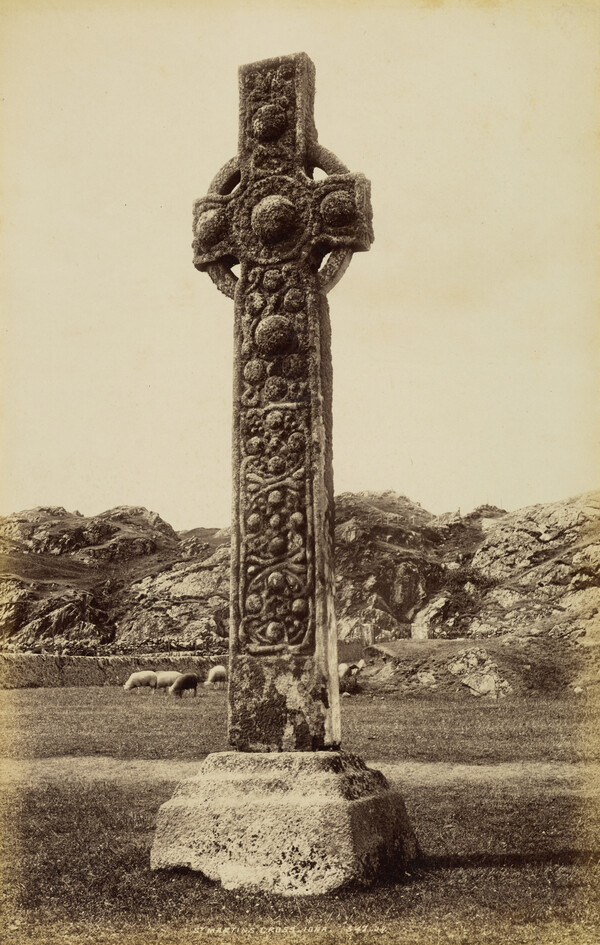
Walt Garlington is an engineer turned writer living in Dixieland. His writings have appeared in a variety of places, and he maintains a site of his own, Confiteri: A Southern Perspective. The photo depicts the ancient St Martin’s Cross on the holy island of Iona, one of the cradles of Christianity in the West (courtesy of this site).

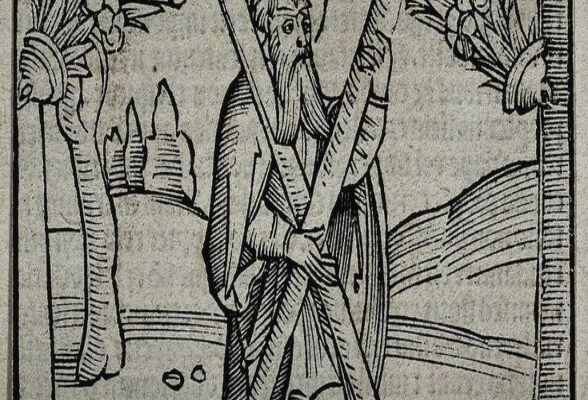
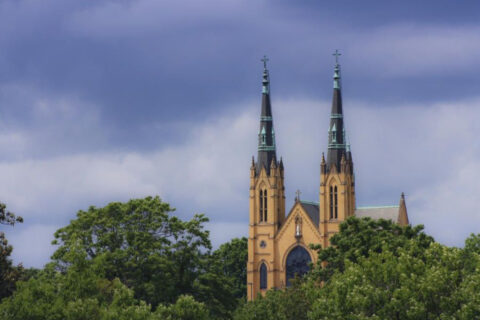

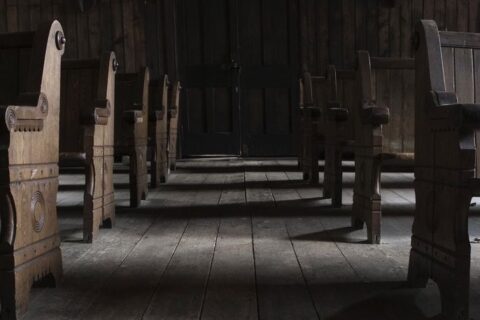
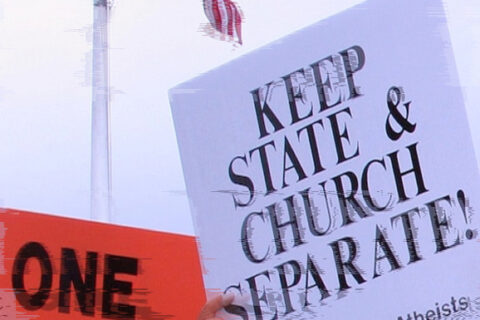
Saint Andrew, don’t forget us.